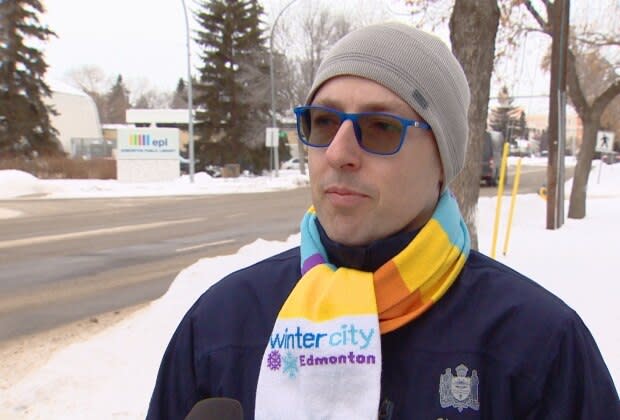Edmonton city council to revisit hike to seniors annual transit pass
Edmonton city council is set to revisit its decision to triple the cost of the annual seniors transit pass amid pushback from some community members.
The cost of this pass was hiked to $374 on Feb. 1, an increase of $237.50, after council approved a new fare policy in late 2019.
Councillor Andrew Knack plans to bring a motion before council on Wednesday that, if passed, would put a one-year freeze to the fare increase, but only for seniors who purchased the annual pass last year.
Knack said he received dozens of calls and emails from concerned constituents labouring to retool their budgets in the wake of the increase.
"If you're not eligible for any benefit right now and you're being asked to spend $240 more when you're on a fixed, lower income — it's tough to manage that," Knack said in an interview Saturday.
'Too much, too fast'
Lorraine Savary, 70, has lived in Edmonton for nearly 50 years and uses her transit pass to get around the city. Whether it's coffee with friends or getting to the senior centres where she volunteers, her pass is a vital way to stay connected with her community.
So she was taken aback by the significant fare hikes introduced this month.
"I just choked, I said, 'Oh my gosh, that's just terrible'. That's just too much, too fast. It doesn't really give a person time to get it into their budget, right after Christmas and all that," Savary said.
She said while she's feeling the impact, some of her friends living on a single, fixed-income are even more affected.
As part of the new fare policy, anyone 65 years or older who earns below a $28,513 income cutoff qualifies for free transit as of Feb. 1. But seniors who earn even just a dollar more than the threshold faced a nearly threefold rise in the cost of transit this year, with only a few weeks notice from council.
If the motion passes, about 3,500 seniors who purchased last year's transit pass for $136.50 will pay the same price for this year's pass.
"There's ways to roll out changes that can help ensure people aren't feeling a really big hit all at once," Coun. Knack said.

Seniors may not feel a big hit all at once if the motion passes, but they will still face a significant transit fare increase next year under the new policy approved unanimously by council last November.
Before the recent fare increase, seniors received an 85 per cent discount on transit passes. But as the city fully transitions to its new fare policy, seniors near the income cut off would still face a threefold increase in their yearly transit costs.
The new two-option sliding scale policy is expected to coincide with the roll out of smart fare, delayed until 2021. It does away with the annual pass in favour of monthly options.
When the policy kicks in, a senior that makes up to 10 per cent more than income cutoff will get a 65 per cent discount on a monthly transit pass, equivalent to around $34 for a monthly transit pass based on 2020 rates, or $408 a year. Seniors making 11-25 per cent more than the cutoff will get a 50 per cent discount.
"We're trying to focus the discounts on those who have the lowest incomes," Knack said.
Advocates call on council to monitor fare increase impact
Sheila Hallet, executive director of the Edmonton Seniors Coordinating Council, says she supports Knack's motion as a way to give seniors more time to prepare their annual budget.
But the city must continue to consult with seniors near the income cutoff as the increases are rolled out, she said, and adapt the policy if some seniors show they're unable to afford the fare hike.
"If they're just showing this kind of increase is just unmanageable for them, we as a society have to look at that and find ways to address some of those challenges," she said.
Hallet says if some low and middle-income seniors can't keep up with the fare increases, the city could look to increase the free transit income cutoff, or increase the subsidies for people who qualify for the sliding-scale fare rates.
"We've got to make sure that our decisions in our municipal governments and our provincial governments don't put people inadvertently at risk for social isolation," she said.
